PENOBSCOT — Ron King chatted in the living room of the farmhouse at King Hill Farm as 3-year-old Mae Schultz waved her new Barbie doll in front of him, trying to get his attention.
“Mae would really like to show you what she bought with your Christmas money,” Amanda Provencher, Mae’s mother, said to King, a 72-year-old with silver locks and a warm smile.
It felt like a typical grandparent moment, although King is not related to the toddler nor to her brother, 5-year-old Gus.
Ever since King signed a contract three years ago turning over his half of the farm to Provencher, 34, and her husband, Paul Schultz, 38, they’ve grown very close, very fast.
That’s a good thing, considering that the young couple, in return for King’s property, have promised to take care of him as he ages. They must be sure he has food from the farm garden and enough firewood to keep warm. They have even agreed to take him into their own home one day, should age, circumstances or his health require it.
“I wanted to live here for the rest of my life,” King said of the farm he purchased in 1971 and ran for decades with his brother Dennis. “But I do know there will come a time when I will need more help.”
Dennis King sold his half of the farm outright to Provencher and Schultz in 2012. Ron King’s half of the deal is a little more unusual – and raises some questions about how, exactly, the arrangement will work – but similar concepts are being embraced by more Maine farmers as they plan for the day when they can no longer run their farms.
DECISIONS WILL SHAPE LANDSCAPE
The issue of land access for new farmers has gotten a lot of attention in recent years. The other side of that coin – the aging farmer who must decide how to transition out of farm life – has not been in the headlines as much. But there’s a growing realization that having a farm transition plan in place is as important as developing a standard retirement plan. Experts are urging “exiting farmers” to think about long-term goals for their properties and how to pass them on, whether their successors are family members or strangers.
Nearly a third of Maine farms are owned by farmers who are at retirement age or older, according to Land for Good, an organization based in Keene, New Hampshire, that helps farmers with issues of land access and transfers. What these older farmers decide to do with their properties will shape the landscape for years to come.
Land for Good has just been awarded a $641,000 federal grant to help 2,000 farmers in New England either find land, if they are just beginning, or find a successor if they are established. Online resources such as landforgood.org and the Farm Transfer Network of New England are also encouraging action.
Two main factors are driving the wave of interest in transition planning: first, the high price of farmland, which makes it difficult for young farmers to break into the business. Next, fewer children of American farmers are choosing to farm themselves. When Paul Schultz and Amanda Provencher arrived at King Hill Farm in 2008 to work as apprentices, they knew only that they were interested in good food and being outside. They quickly decided, though, that farming would be their future.
Their employers, Ron and Dennis King, had grown up on a farm in Michigan. In 1967 Ron King was in graduate school, on his way to becoming a well-known weaver, when he heard about the Haystack Mountain School of Crafts on Deer Isle and decided to hitchhike to Maine.
He later returned here to teach, and one day, on the spur of the moment, he picked up real estate listings in Ellsworth and started searching for a farm. When he got to what is now the 160-acre King Hill Farm – so overgrown that all but about 5 acres had been reclaimed by woods – “I drove up the driveway, drove back to Ellsworth, and said ‘I’ll take it.’ ”
SO NEARING, AND YET SO FAR
In 1971, he paid $13,000 for the farm, which at the time had no buildings other than the small house where he still lives. It’s a barnyard away from the main farmhouse, which was built in 1994. The original house had no windows, plumbing or electricity, and King inadvertently became a member of the back-to-the-land movement. “Everybody else around here, all of the other hippies who bought property, bought it because of the Nearings, the gods of the back-to-the-earth movement,” he said. “I had no (expletive) idea who the Nearings were.” (Helen and Scott Nearing, authors of “Living the Good Life,” were well-known champions of sustainable living and built a homestead in nearby Harborside.)
King started a garden. He built a shack to house dairy goats, and then added chickens and sheep – ultimately he would have 60 ewes.
It wasn’t long before King’s brother Dennis, a wildlife biologist, fell in love with the place as well. He joined his brother and ultimately became the full-time farmer on the property.
Jo Barrett, 61, who is the Maine field agent for Land for Good and just so happens to be married to Dennis King, recalls that she and her husband, now 74, first began talking about planning for the farm’s future around 2005. Between the two, they had three children, none interested in farming. Ron King has no children. The three went through several apprentices who didn’t work out as potential new owners.
“I almost guarantee you that the first people you think you’re doing this with aren’t going to pan out,” Barrett said. “It’s not like selling a plumbing business.”
Then came Schultz and Provencher. The couple had already agreed to take on more responsibility around the farm in 2009, their second growing season on the farm, when, in March, Dennis King had a massive stroke.
“He was in the hospital, and Jo was with him every day,” Provencher recalled, “and so that season we just essentially ran the farm, and that was one hell of a steep learning curve.”
Once they got through that year, negotiations with Barrett and her husband started in earnest for their half of the farm – and didn’t end until they signed a contract in 2012.
EMOTIONAL LANDMINES
Coming up with a farm transition plan can be complicated and time consuming – and an emotional roller coaster for the older farmer, who may resist even thinking about the future. As Jim Habana Hafner, executive director of Land for Good, puts it, “the soft issues are actually the hard issues.”
“Farming is not just a job,” he said. “They’ve invested in the land. They’re tied to the land. Maybe there’s multiple generations.”
Barrett experienced this first-hand. For farmers like her husband, she said, the land is an extension of who they are.
“It is a living ecosystem or organism that we’ve nurtured for years and that has fed and supported us in return,” she said.
If livestock are involved, that can make it even harder to let go. In Barrett’s case, the blow of selling the farm has been softened by yearly personal notes from Schultz about her favorite cow, Ruby. “It is nice to hear about her calves and how she is doing,” Barrett said.
The biggest emotional land mines center around management or control of the farm, according to Paul Dillon, a Corinth attorney who has handled many cases of farm transition planning.
” ‘But they don’t do it like I do it,’ ” he said, quoting older farmers he has worked with who are contemplating turning things over to a younger generation. ” ‘They’ve gone to college, and they think they know everything, but that’s not the case.’ ”
(The other side of that argument, Dillon gently points out to his clients, is that there are new ways to do things.)
A transition can take a lot of forms, Dillon said, because solutions are as varied as the people putting the plan together. The older farmer may sell the land and business to his successor and get out of the business completely. Or he might retain ownership and lease the land to the successor. There could be a lease with an option to buy, or the farm business could be put into a limited liability company, an option that is becoming more popular because it provides a lot of flexibility.
Some exiting farmers even ask for so many cords of wood each year, or food deliveries that count toward rent or purchase.
There may be a transition period – perhaps a year – where the exiting farmer moves off the farm but works with the successor through the rhythm of the seasons.
“A lot of times, if it’s family, the older farmers may for a period of time stay and be involved, but try very hard to let the younger farmer do things,” Dillon said.
In the case of Dennis King’s half of King Hill Farm, Schultz says they considered just about every possibility, including a lifetime lease and paying for part of the land with farm goods. Ultimately, they agreed on seller financing.
“That was huge,” Schultz said. “That was the big concession on their part to making the purchasing thing work.”
But the deal almost didn’t happen – several times. Ron King said the biggest obstacle appeared to be how close his brother and sister-in-law would be to the farm.
At one point, they had considered adding onto the farmhouse or building a new house in a nearby field, raising questions over how involved they would be in decision-making on the farm. Negotiations became much easier when they decided to leave. Barrett said it was extremely hard on her husband to see someone else working his farm and making changes. She also found it difficult to let go.
“My assumption was that I had to grow old and die on that farm, that there was no other possible path to happiness,” she said.
Eventually, Barrett and her husband decided to move to Blue Hill, closer to doctors and drugstores. Dennis King is in a boarding home now, and Barrett lives on 2.6 acres, where she grows vegetables and raises poultry.
Throughout the negotiations, Barrett’s goal remained the same: She wanted the community to have its farm – the place where schoolchildren visit, families take farm tours and budding farmers can find jobs.
Thinking long-term is essential, Dillon said. He encourages clients to think about what they want out of the process, before they start negotiating.
Both sides should share their expectations and fears. To what extent will the older farmer be involved in mentoring the younger farmer – will he or she be on call 24 hours a day? What if the younger farmer wants to take a weekend off – a notion that may be unthinkable to the older farmer? Sometimes having a mediator helps.
GO SLOW
Things don’t always work out.
“Honestly, I’ve had three or four where after six months it all blew up and people said ‘What are we doing this for? We’re going back to Minnesota,’ ” Dillon said. “Or they get up and leave in the middle of the night.”
The entire process can take years, but experts say it’s a good idea to transition gradually because that gives both sides time to adjust.
Ron King didn’t start thinking about his own transition until one Easter Sunday when Barrett asked him to facilitate a negotiation session with Schultz and Provencher. He remembers thinking: “I like these guys. How about taking care of me for the rest of my life?”
Both sides say the decision to enter into their unusual contract was a giant leap of faith in the beginning. King says he doesn’t have the same ideas about land ownership as most people, so it was easier for him to consider trying something different. Schultz says he and Provencher might not have been able to afford the rest of the farm if they’d had to pay for it in a traditional way.
Ron King gave his half of the farm to Schultz and Provencher, and he’s leaving his house, lot and some additional forest land – about 75 acres – to them in his will. The contract has provisions to protect both sides, including one that says if the couple decides to sell the farm within 10 years, they will owe King money.
“These are the lawyer parts that we never even thought of,” Schultz said. “What if we quit and sell the whole thing, and then Ron feels bad because he gave us land we just sold?”
Just how far the couple have to go in taking care of King is a little unclear. Neither side seems too concerned about getting in over their heads.
“If you ask me what’s in the agreement, I’m not real sure,” King said.
Schultz said there is a provision that says King (who is in fairly good health at the moment) can be moved to, say, a nursing home, but only if doctors deem it medically necessary. King’s medical power of attorney went to others so the couple would have nothing to gain from making health care decisions for him.
But these were all the lawyers’ ideas. Schultz said he and his wife have not stayed up late at night worrying about every possible worst-case scenario, and says part of what made the agreement possible was not over-analyzing. “I feel like the agreement is what you wish your kids would do for you when you’re older,” he said.
Schultz said people, including some lawyers, have had trouble understanding a relationship that isn’t based solely on a purchase-and-sale agreement. Provencher agrees. To her, the arrangement feels like an organic situation that is still developing, and not a strictly legal one.
“Paul and I would look after him regardless of whether or not it was stated in the contract that we must do X, Y and Z,” she said. “That feels a little better. Then I feel like we’re doing it because that’s how we would look out after our parents and other people in our lives that we love, not because it’s stated in the contract that we have to do it.”
As for King, he trusts the couple, who have become like family. “As a stodgy old bachelor,” he said, “it’s been a great pleasure watching these kids grow up.”
He says it’s also been “a joy” to watch Schultz and Provencher take over the farm and do things differently – harvesting broccoli a different way than he and his brother did, using seedlings instead of direct seeding.
They also are already thinking long-term themselves: Years from now, when the time comes for them to retire, Provencher said, they’ll be looking for another generation of young farmers to carry on at King Hill Farm.
Send questions/comments to the editors.


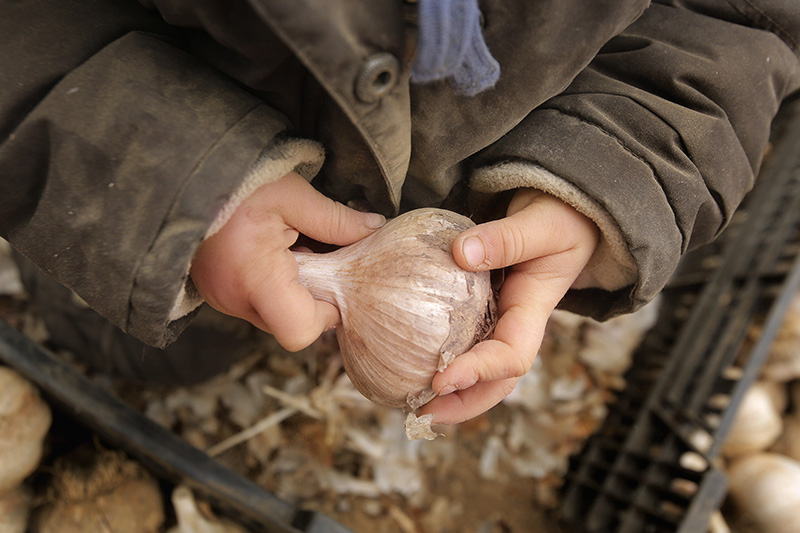
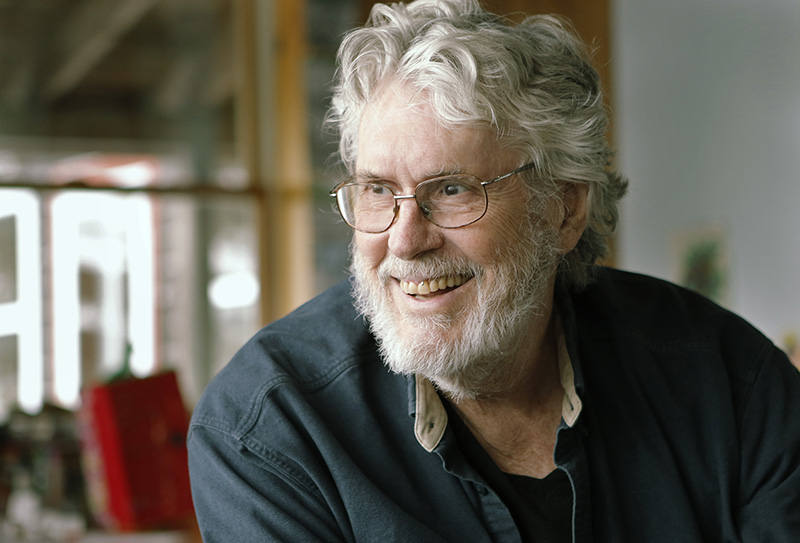
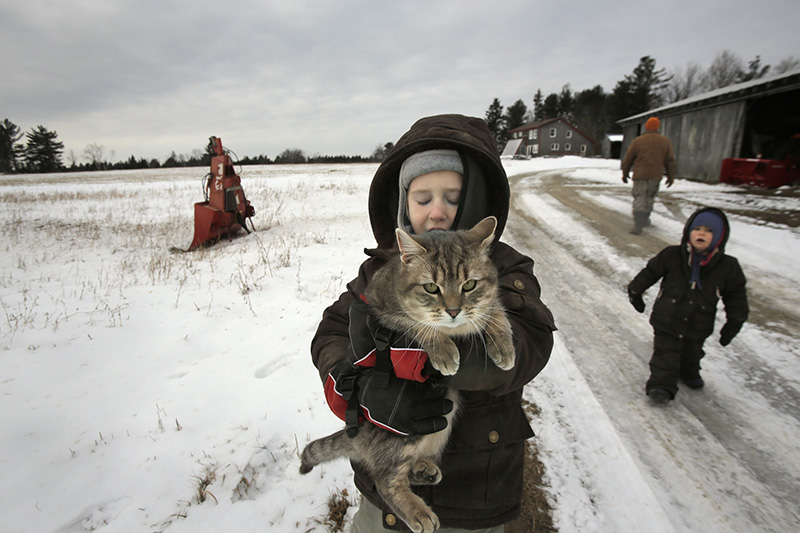
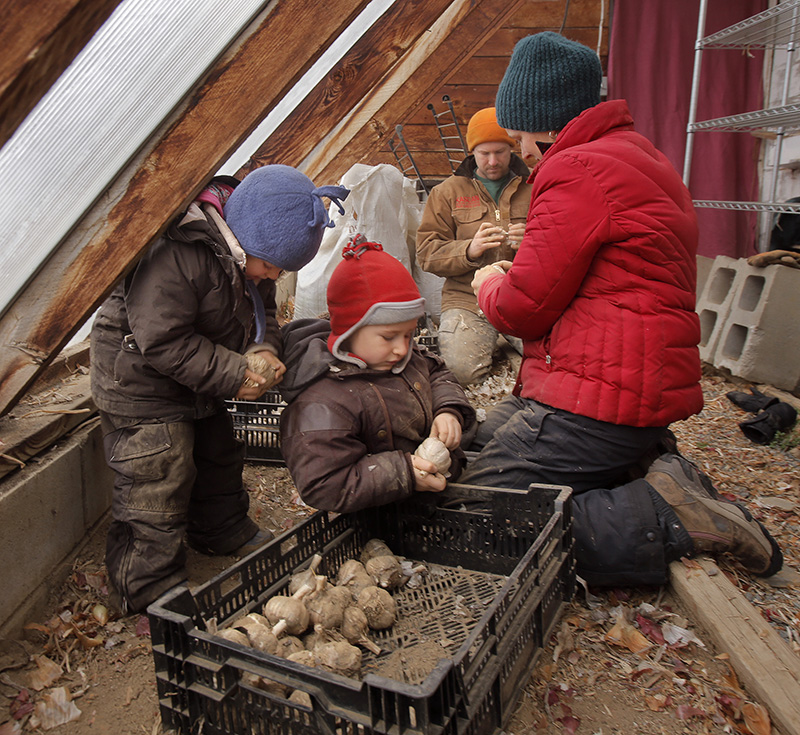
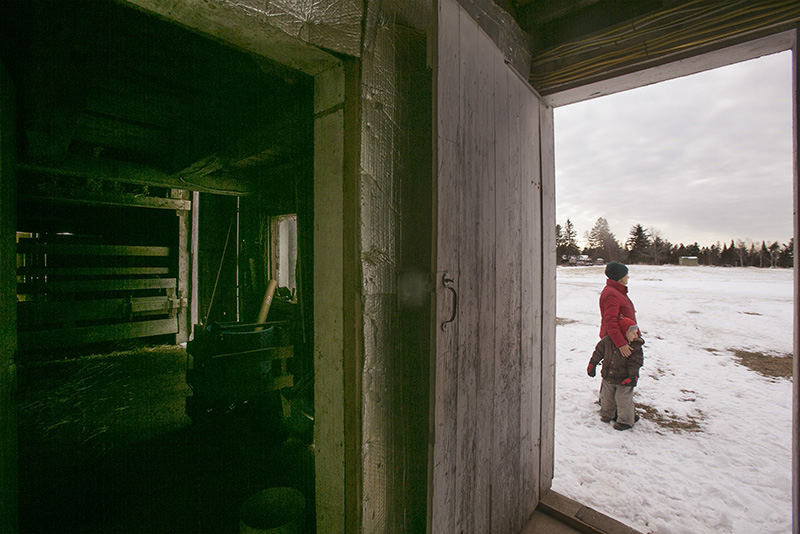
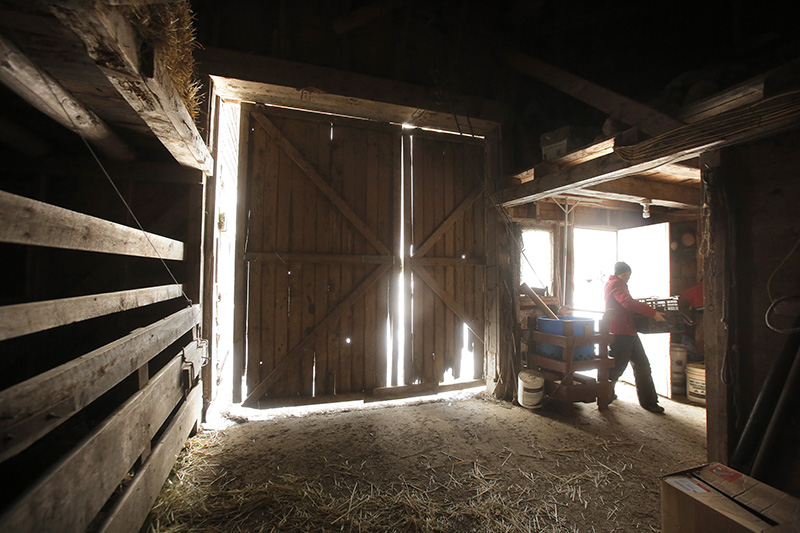
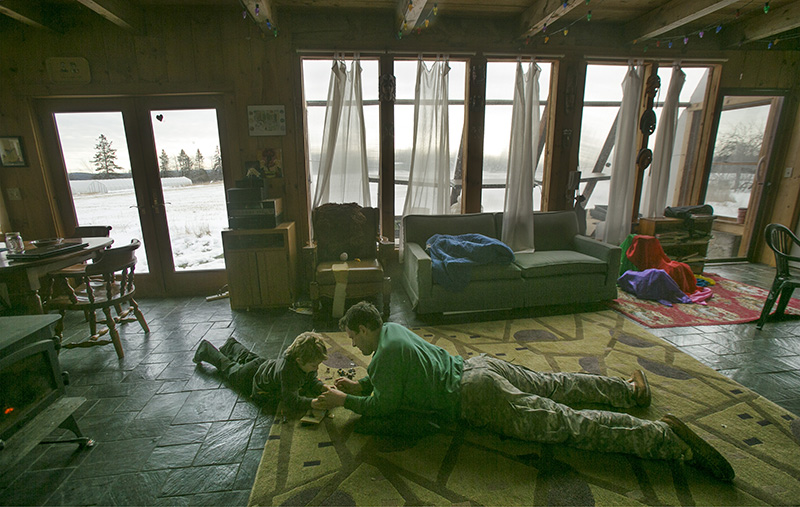
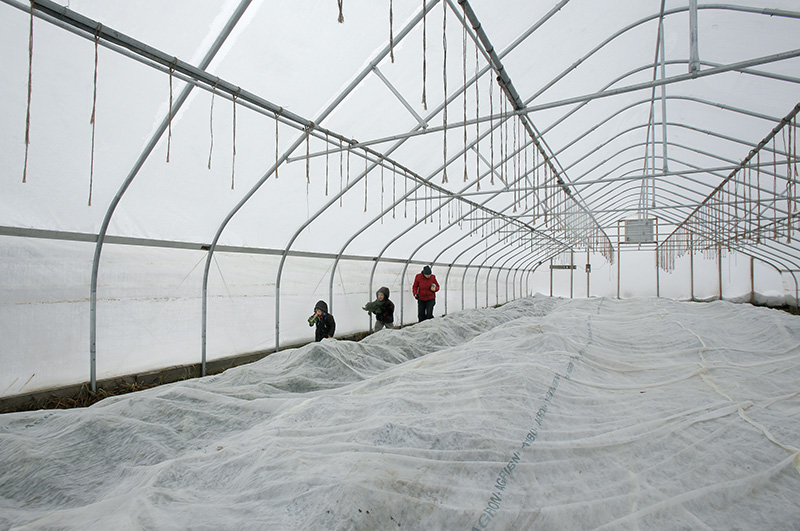


Comments are no longer available on this story